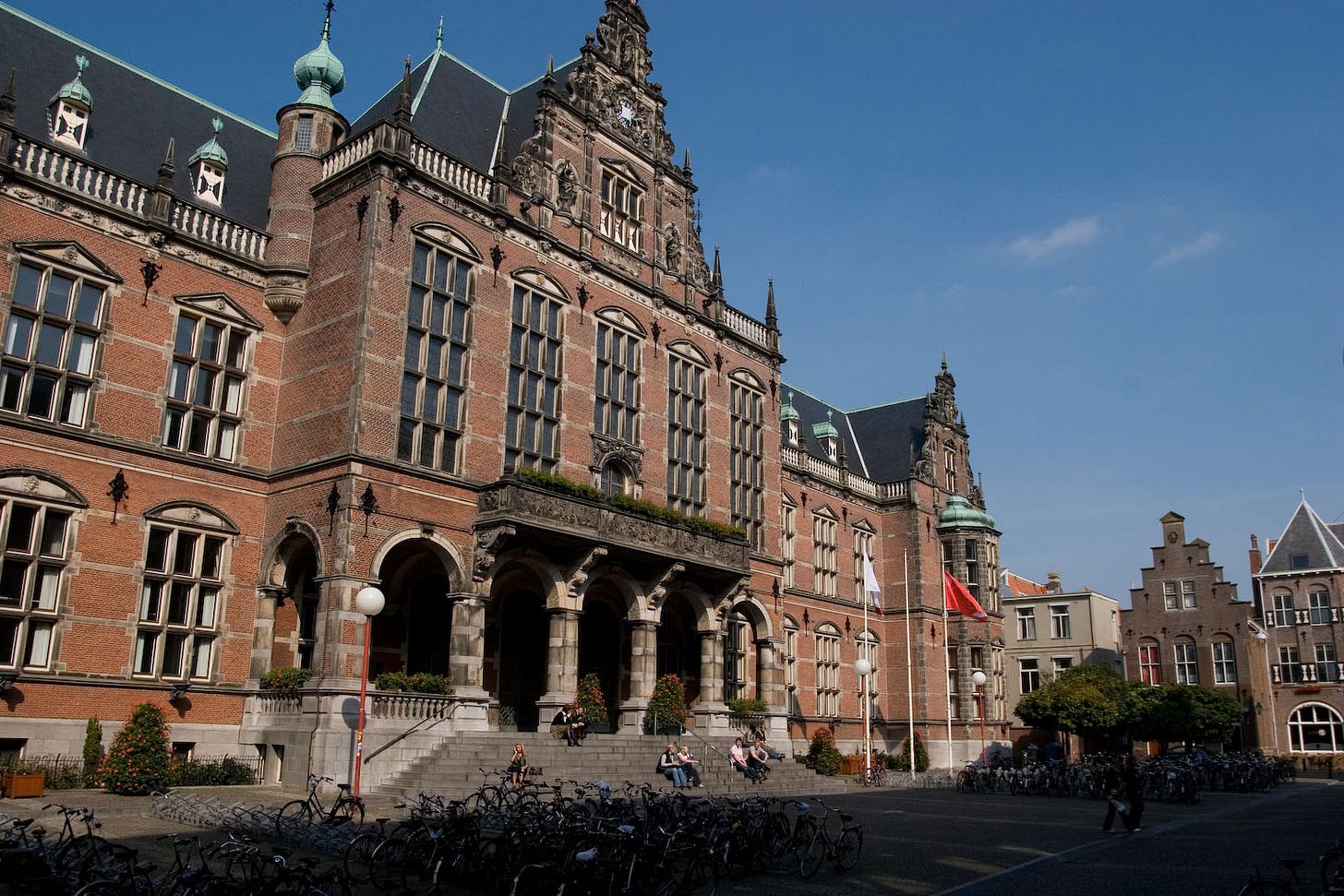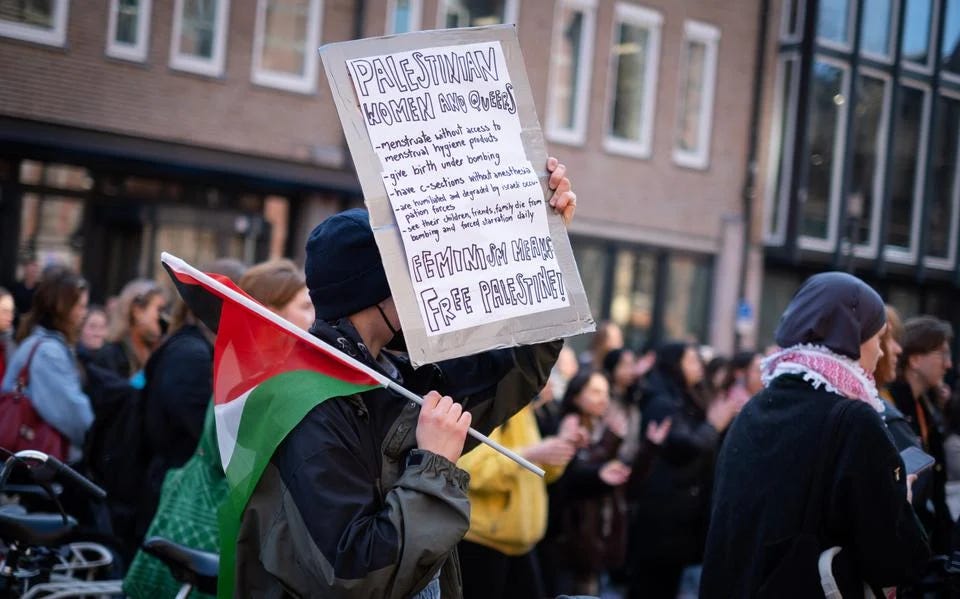Controversy Surrounding Pro-Palestinian Protests at the University of Groningen
Even beyond RUG, authority figures are concerned with the disruptive nature of these protests and have shown attempts to suppress the activities.
In recent months, the University of Groningen (RUG) has faced a series of pro-Palestinian demonstrations that have stirred controversy and even prompted security measures. During November, December, and April, there were incidents of vandalism and defacing of university buildings, including the Academy Building located on Broerplein. The damages include broken windows of the university library, Palestinian slogans written on the academy building, and other kinds of disruptions.
Mayor Koen Schuiling expressed concerns about the escalating violence, thereby leading to discussions about the sufficiency of existing security measures.
Amidst these developments, RUG introduced new rules aimed at partially restricting demonstrations on campus. These rules, implemented earlier this year, include bans on demonstrations after 7 p.m., unaddressed flyers, and disruptions to classes and ceremonies.
The Groningen Student Union (GSb) has strongly opposed these restrictions, arguing that they infringe upon freedom of expression and the right to demonstrate. The GSb initiated a petition against the rules, which has gathered over two hundred signatures, showcasing the widespread dissatisfaction with the new restrictions.
Criticism of the university's handling of the situation intensified when it was revealed that the protest rules were falsely stated to have been approved by the university council. Ale ten Cate, chairman of Lijst Calimero, denounced the university's misrepresentation of the approval process and criticised its dismissal of voices within the university community. Despite objections from Lijst Calimero and the Personnel Faction, the university proceeded with the implementation of the rules, leaving students and staff in further discontentment.
On Wednesday, cameras and spotlights were installed to monitor the area, increasing security measures, and discouraging further destructive protest activities. It is unclear how long the cameras will remain on Broerplein and the tensions between the university administration and student groups remain unresolved.
Furthermore, Prime Minister Mark Rutte and Justice Minister Dilan Yesilgöz spoke out on the same issue, condemning the violence of vandalism taking place during protests at the University of Amsterdam. Rutte emphasised the importance of peaceful demonstrations while condemning violence and anti-Semitism, reaffirming the government's commitment to combating such behaviour. Riot police were deployed to disperse pro-Palestine supporters in Utrecht and Amsterdam, resulting in numerous arrests.
To ensure safety, the University of Amsterdam announced the closure of its city centre locations until Monday. This situation highlights the broader context of tensions surrounding pro-Palestinian protests across Dutch universities, including the recent controversies at the University of Groningen.







Congratulations! Absolutely no mention of who actually brought the violence to the protests in Amsterdam and Utrecht, no mention of the level of aggression the police has used against protesters, no mention of the actual demands of the protesters. You are framing these rules as a necessary evil and contribute to the vilification of people standing against apartheid and genocide.
When for the past months the university only took a neutral or silent stance after students tried to approach it within the established rules, protest is the only solution.